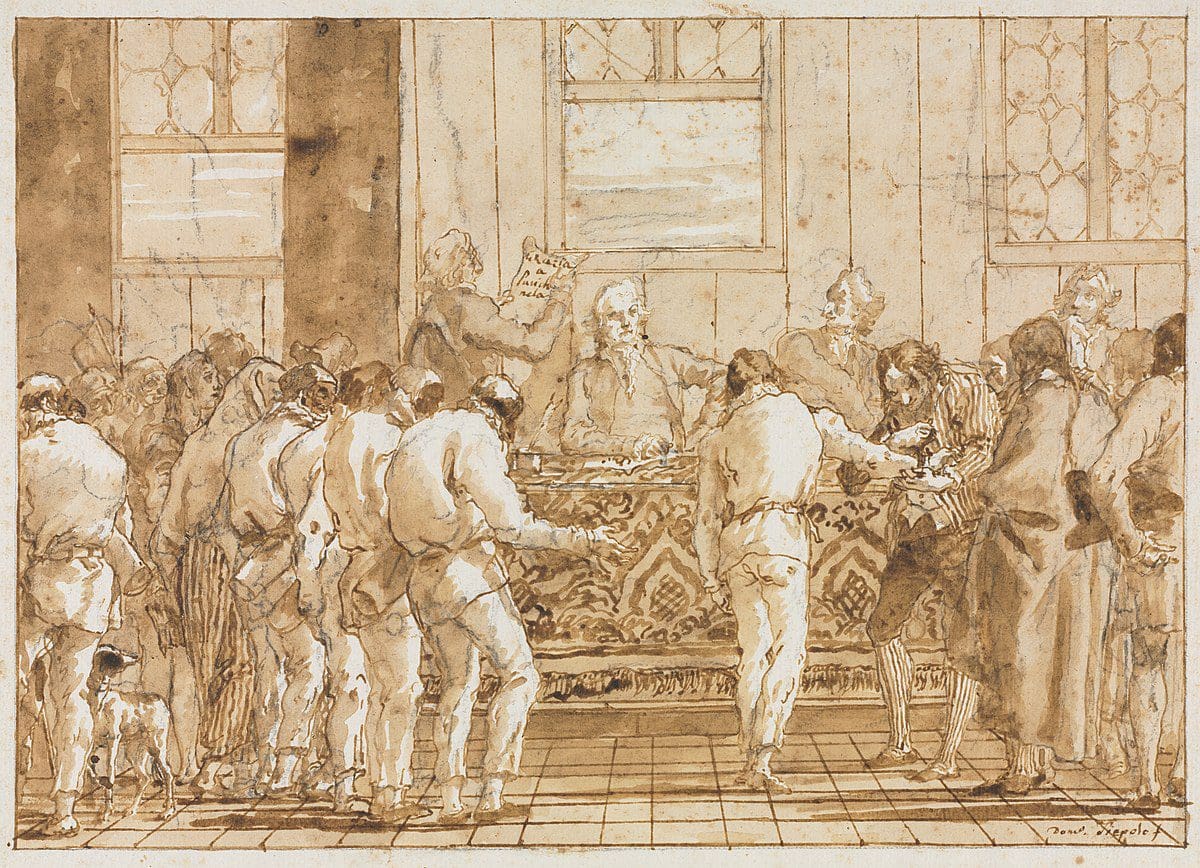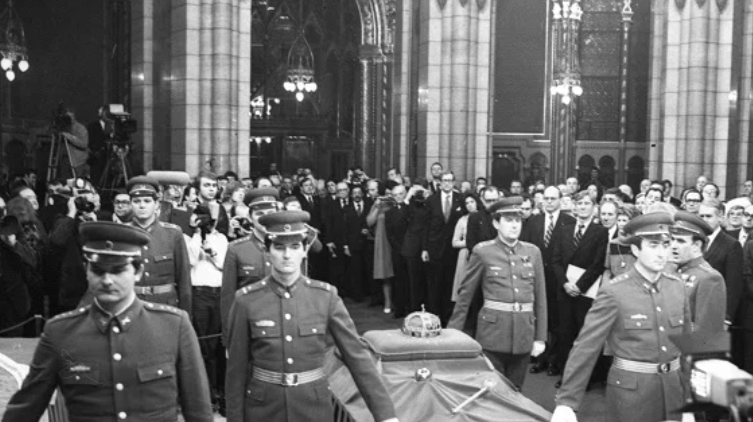The debate by Hungarian historians over whether the judgements of the post-war People’s Tribunals can be trusted is a long and perhaps fruitless one. The history of the People’s Tribunals is not known well enough and not enough research has been done on this subject. To analyze individual cases is extremely important in understanding the way the emerging communist one-party state has managed to manipulate these trials and the understandable demand of people to see war criminals punished.
Let me illustrate the above with the following story: in January 1946, the people’s prosecutor Sándor Matisfalvy was detained on suspicion of corruption, and his case was retrospectively reviewed. Thus, the following case came back into the spotlight: in the summer of 1945, two brothers named László Szegfi and István Szegfi were investigated for extorting Jews during the German occupation and entering the Schutzstaffel (SS) and the short-lived infantry divison of the Waffen SS (5th Waffen Grenadier Division of the SS “Hunyadi”). The case was closed by October of the year, but this was suspicious for Miklós Bauer, who was then only a 25-year-old apparatchik in the regime but who would later become an important enforcer in the much feared State Defense Authority (Államvédelmi Hatóság –ÁVH) terror organization.
The story of the Szegfi brothers was complicated by the fact that they both had testified that they were Jews. This seems to be only partially justified from the documents of the People’s Tribunal, but László Szegfi’s birth certificate undoubtedly shows that both of their parents were Jewish. In any event, their Jewish origin was constantly invoked during the proceedings. Bauer concluded that a number of irregularities had been committed at the People’s Prosecutor’s Office and that the brothers were in fact, guilty of collaboration.
According to Bauer’s report, several names have arisen in connection with the mistakes made during the administration
In a report to the Political Law Enforcement Department (Politikai Rendészeti Osztály, PRO) under the Ministry of the Interior, the predecessor of the State Defense Department (Államvédelmi Osztály, ÁVO) and then the State Defense Authority (ÁVH), it was found that the Szegfi case files had not been filed according to protocol. At the People’s Prosecutor’s Office, Matisfalvy decided that the case was not a People’s Court case, but an ordinary criminal case, so he transferred it to the People’s Prosecutor’s Office, which then dropped the investigation and released the accused. According to Bauer’s report, several names have arisen in connection with the mistakes made during the administration: in addition to Matisfalvy, Deputy Attorney General Ernő Fogas, Vilmos Szegő and Sándor Molnár, deputy attorney generals and Judge Péter Jankó. According to the report, one of the brother-in-laws of the Szegfi boys, the famous actor Zoltán Greguss, was involved in a way.
Matisfalvy testified that Fogas and Greguss visited him a few days after their file had first arrived. ‘Fogas asked me to handle this matter. They told me that [the Szegfi brothers] were Jews, victims of the past era, and were informed that there was no political side to the matter and that what they had done was done for their own lives and for their families.’[1] He first confessed that he had not received any gifts from Szegfi’s relatives, and then in a subsequent confession he remembered receiving a silver cigarette case from Greguss.
Mrs István Szegfi went through a similarly interesting process of forgetting and remembering the events. She first claimed before Bauer that she had taken drugs before and was therefore unable to confess. Then on the same day, however, she made another confession in which she already remembered everything. Not only did she confess that Matisfalvy visited his family and received a silver case from them, but even Péter Jankó, chairman of the council, visited them. They also became friends with the Fogas family, and they even had lunch together oncw. Fogas confessed that he visited Szegfi’s apartment. István Szegfi admitted that Matisfaly wanted to do some business with Jankó and for some reason, they spoke about it in his apartment. The case is confusing in the sense that nothing has been revealed about the essentials, namely who wanted to do business, with whom, and regarding what?
During the same time of Bauer’s investigation, the communist polemicist Gábor Andor mentioned in the press that Szegő had “released” Nazi collaborators – that is, he had terminated the proceedings against them
But the real question is what could the communists get out of this case? Matisfalvy was a politically dead man by this time. The target could have been Szegő. During the same time of Bauer’s investigation, the communist polemicist Gábor Andor mentioned in the press that Szegő had “released” Nazi collaborators – that is, he had terminated the proceedings against them. However, in February 1947, Szegő was appointed Deputy People’s Attorney General and later took part in important trials, making it unlikely that he was to be blackmailed. Péter Jankó was a hard-line communist People’s Judge, with no sign of derailment in his career. His involvement of Sándor Molnár is quite fleeting. Fogas seems to be the most likely target, and the assumption is confirmed by the fact that Bauer himself wrote in the investigative report that Fogas was probably guilty under Section 17 of the Judiciary Act, that is, of failing to prosecute a criminal. Fogas “slipped over” from the previous right-wing system: he became the secretary of the Royal Court in January 1944, before the Soviet conquest of Hungary. Although Fogas was dismissed in February 1948, he was soon appointed a People’s Judge.
It appears that we cannot fully answer these questions on the basis of these documents, but the lack of a final result does not mean that it was merely an aftershock of the Matisfalvy case and that there was no more prominent target. In a dictatorial or semi-dictatorial environment, normal market or workplace competition is replaced by top-down or self-propelled showdown attempts, which do not necessarily have to be successful to achieve the desired result, i.e. an even more strict operation of the system.
But even more interesting are the testimonies that were not about anomalies, but about practices that were considered common in the People’s Prosecutor’s Office or the public prosecutor’s office. Szegő himself did not deny that there were sometimes “urgent” cases on the part of the Ministry of Justice. Erzsébet Varga, the typist secretary of Matisfalvy, considered it the most natural thing in her confession that she sometimes wrote the indictments herself, for example in the cases of Volksbundists – ethnic German supporters of Nazism –, and that sometimes she signed documents instead of Matisfalvy!
Even more shocking was the testimony of Greguss, who thought it the most common thing that he had visited Matisfalvy several times, ‘to have him look at the matter and find a way to help (…)’.[2] Greguss called this a “friendly favour”, but he mentioned that he also ‘went’ to Fogas and Molnár to inquire as to why he was not allowed to talk to his detained relatives. In his testimony, he briefly mentioned that he had also visited the Ministry of Justice. Based on the above, therefore, the People’s Prosecutor’s Office was a place during the transition years where people influential in the left-wing system simply walked in and asked for favours in connection with cases; where important documents could be signed by secretaries and indictments written by them; and where certain cases were deemed “important” from above and were forcibly seen through.
In the end, István Szegfi was acquitted on charges of blackmailing Jews, but László was sentenced to 12 years in prison which was later modified to three years in prison by the National Council of People’s Courts (Upper Court). The latter came to the conclusion that he had indeed been compelled to join the Hunyadi SS Armored Grenades, so he could not be seen guilty of this. However, he was still found guilty under Section 15 of the Judiciary Act for using means of power of the fascist regime for his own purposes. This story highlighted the unreliable nature of People’s Tribunal documents and the necessity of judging each case according to the peculiarities of the story in question.
[1] For the documents of the trial see: Budapest Főváros Levéltára (Budapest Municipal Archives), VII.5.e.1949.19760.
[2] For the documents of the trial see: Budapest Főváros Levéltára (Budapest Municipal Archives), VII.5.e.1949.19760.








